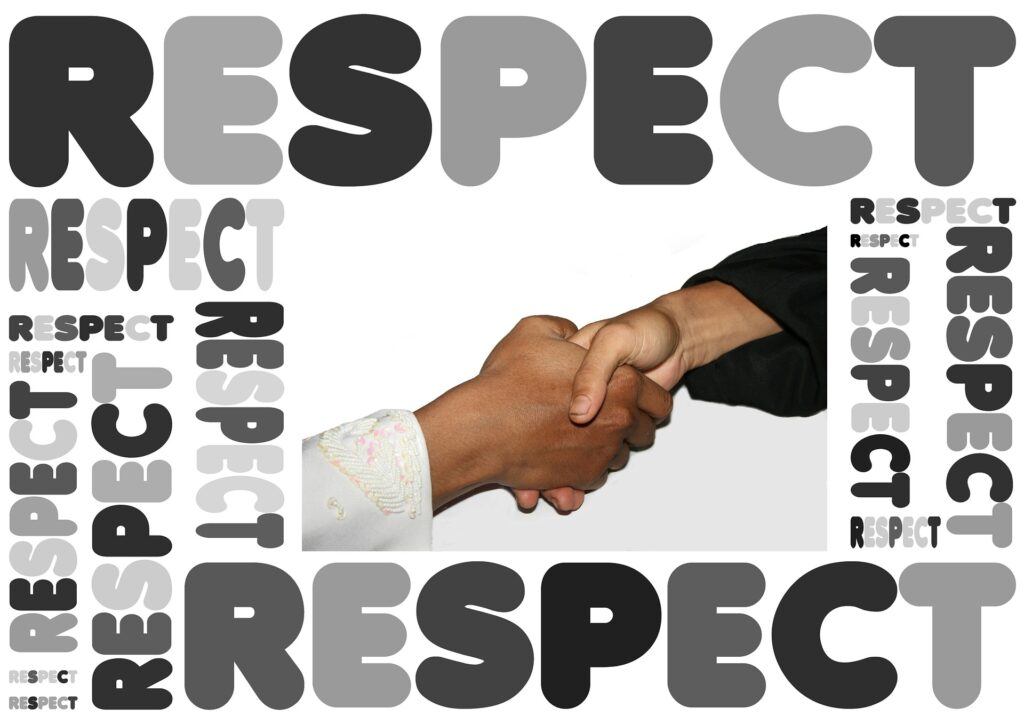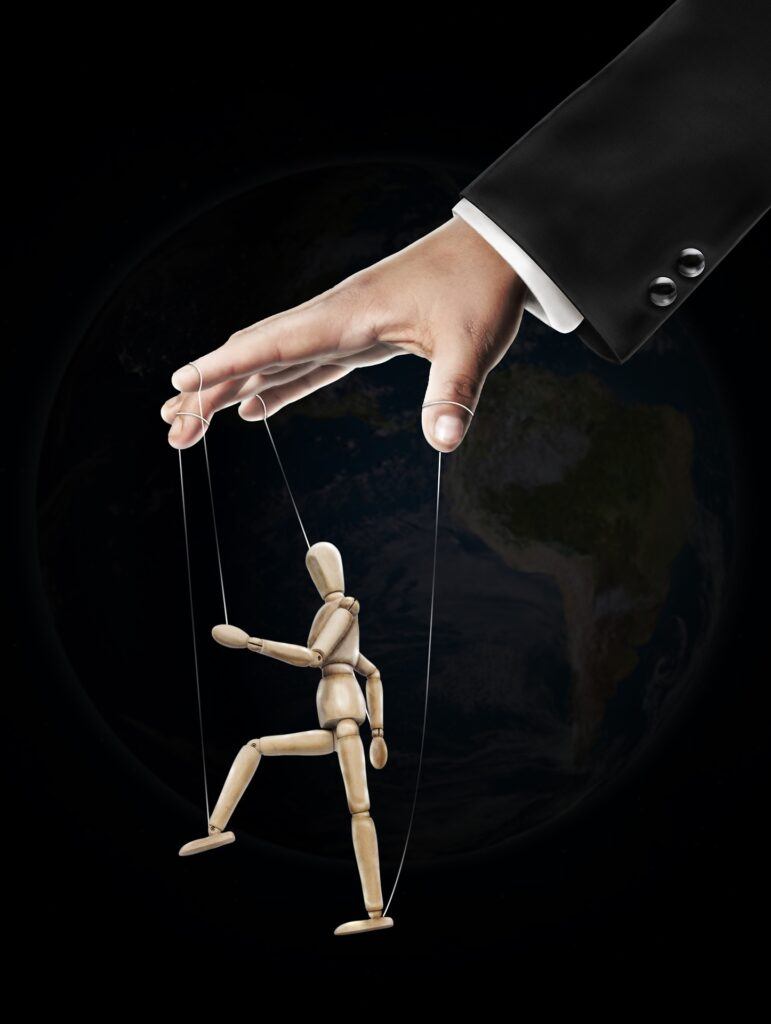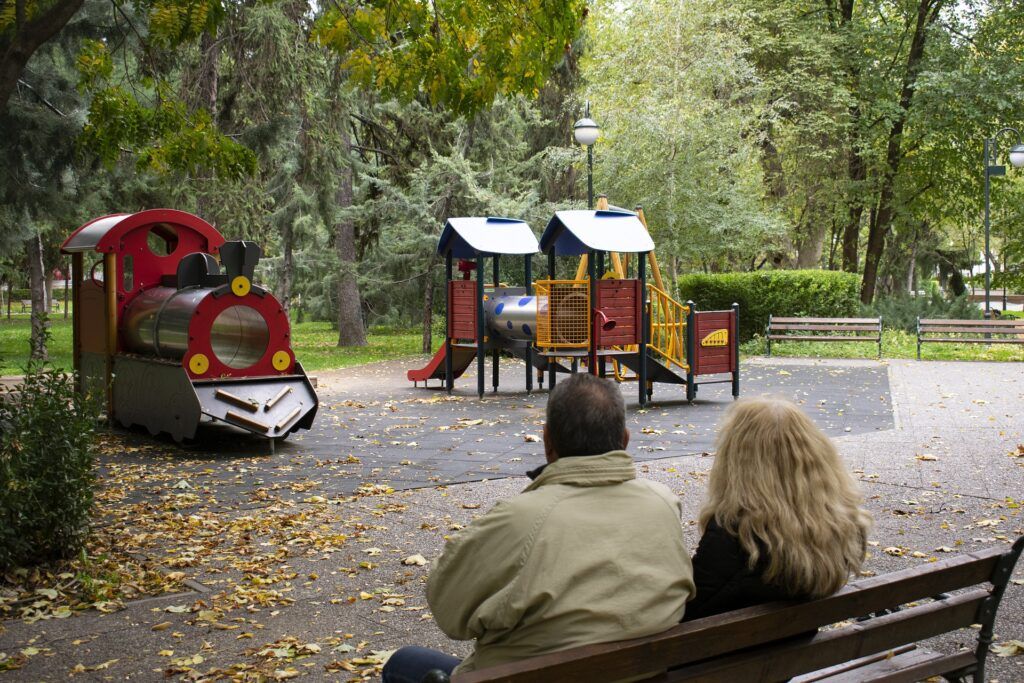Introduction

Welcome to A Fine Time! We truly want to see your relationship be as healthy as it can possibly be, so we’ve gathered 69 silent relationship killers that can potentially harm your relationship if they aren’t addressed as soon as possible and in the proper fashion.
I want to take this moment and commend you for being willing to read this post – there are so many couples out there who aren’t even willing to try to live the life they want to live. I congratulate you for taking the leap and I hope that this article lives up to your expectations!
Don’t be afraid to take notes and bookmark any areas you feel you need to return to. Not everything here will apply to you, however I do want to inform you of any potential problems anyway so that you’re armed with the knowledge and the ability to spot something before it becomes a gigantic mess!
This may sound counter-intuitive, but I want to prepare you for it; if you come across anything in this post that makes you tense, uncertain, or even angry, I want you to pay attention to that “killer” in particular. Write it down. Do some further reading with your partner. Talk with them about it. If you spot your problem(s) in this post I’d love it if the two of you sit down and truly work it out because having a healthy relationship is one of the most wonderful things on this planet earth!
Why Do These Killers Emerge?

Time, trauma, bitterness, discomfort, anger/resentment, mindset, and a lot more can cause a relationship to be less than it could be. If there’s one thing I’ve learned about life, however, is that it rarely matters where the arrow is shot from and that everything hinges on what you’re doing about it. Part of the reason I say this is because the potential is limitless – for example, your partner may desire to do something that you are unwilling to do, or vice versa. One of you denies the other, and consistent denial can lead to bitterness or resentment, two of which are prominent relationship killers. Or, perhaps one/both of you have unprocessed trauma in your lives. This is another huge relationship killer that inspires people to think in a “Survivalist’s Mindset,” which is a point I cover below (link to the correct part of the post).
It’s a good idea to narrow the scope by asking yourself/your partner, “Why is this “killer” present in our relationship? What can we do about it?” Honestly answering these questions will take care of the “why” portion of it, which often leads to the “how” portion of it, and then the two of you will be one step closer to the life you want to live!
What Can We Do About It?

It depends on which killer(s) is/are present in your relationship. I’ll do my best to cover each “how to” as we come across any particular problem, however there is one general rule I’ve noticed throughout all of the points I mention – communicate, communicate, communicate!
If something is wrong with your relationship and neither of you know precisely what it is, I suggest communicating with each-other and figuring out exactly what it is. Once you’ve done that it’ll be much easier to make a plan to overcome your problem(s), and with the right motivation, they will be easy to follow through.
I’ve done my best to order this list in order of importance: What’s at the top is far more likely to affect your relationship than what’s at the bottom. I’ve also added links below, so please feel free to skip to whatever catches your eye. Without further ado we begin our venture into the list of 69 silent relationship killers that can ruin your relationship, and what we can do about them! 🙂
- Unresolved Trauma
- Searching for and Expecting ‘Perfect’
- Money
- Laziness/Unwillingness to Commit to a Healthy Relationship
- Resentment
- Conflict
- Lack of Communication
- Lack of HONEST Communication
- Lack of POSITIVE Communication
- Lack of Understanding
- Lack of Trust
- Lack of Connection
- Lack of Respect
- Lack of Intimacy
- Lack of Spontaneity
- Lack of Attention
- Lack of Space
- One or Both Partners Lacking Self-Awareness
- General Life Stresses
- Past Events and People
- Emotional Baggage
- Invalidating Emotions
- Insecurity
- Excessive Neediness
- Survivalist Attitudes (Corrupt Selfishness)
- No Sense of Humor
- Unrespected (or Unformed) Boundaries
- Anger, Resentment, and Frustration
- Holding Grudges
- Destructive and Irritating Habits
- The Third Party (The Ex, The Current Partner)
- The Urge for Trouble
- Manipulation
- Cheating
- From Lovers to Friends (Too Much Comfort)
- Taking Your Partner For Granted
- Differing Opinions, Beliefs, Viewpoints, and/or Goals
- Fear and Anxiety
- Giving Your Power To Your Partner
- Lack of Self-Control (Impulse Control)
- Addictions of Any Kind
- TMT (Too Much Technology)
- No Time For You
- Excess Defensiveness
- An Imbalance Between Dependency and Independence
- Lying
- Unconstructive Criticism
- Stonewalling (Unresponsiveness)
- Not Getting Along With Friends and Family
- Not Keeping Your Promises
- Change (Fixing Your Home/Moving/Uprooting your Family/Stressful Change)
- Changing Yourself
- Trying To Change Your Partner
- Unhelpful Words: Never, Always, You, Can’t, Should, Now, ETC
- Health Issues
- Children (Or, Wanting Children)
- Not Wanting Children
- General Discomfort
- Being Mean For No Reason
- Contempt
- Letting Yourself Go
- Lack of Curiosity
- Making (and Keeping) Ungrounded Assumptions
- Bitterness
- Lack of a Social Life
- Obsession
- Lack of General Courtesy
- General Incompatibilities
- Unattractiveness
Unresolved Trauma

Unresolved trauma is, by far, the most important entry on this list. If you and/or your partner have unhealed trauma in the back of your mind then it’s going to affect your actions in the present, and almost never in a positive way. We can see many traumatized people today, people who never receive any treatment, and they are often (sometimes very) destructive to themselves and the people around them because they’re acting out the cycle of abuse.
It is possible to sit with yourself/your partner and ask the questions, “Do I have unhealed trauma? If so, when did the trauma happen? How can I heal myself?” You may get very far by asking these questions and you may be able to completely heal yourself this way, thereby taking a gigantic step towards a very healthy relationship. I will leave a link that helps you find the right therapist in your area as well, because often, having a third party helping you with your unresolved trauma is often the best way to go. I wish you all the best in your healing!
Searching for and Expecting ‘Perfect’

I’m not saying that having standards is bad. I’m also not saying that having expectations is bad. What I am saying is having too many expectations and setting the bar too high will bring you disappointment, sometimes even anger, especially if these expectations are not communicated to your partner properly.
I recommend writing down exactly what your expectations are for your partner, analyzing them to see if they’re reasonable, communicating what they are to your partner, and seeing what the reality is or possibly could be. If you expect them to be extravagantly confident and they simply aren’t able to be like this, I suggest that you drop your expectation – it’s only going to bring you pain and suffering in the long term. If you have 20 more expectations that your partner is unable to meet… It’s the same process.
Asking yourself, “Why do I want ‘perfect’? Why won’t I settle for less?” will give you a valuable insight into one of our most natural instincts, natural selection. We are biologically hardwired to only accept the cream of the crop, the best of the wheat, the plumpest of fruit. We are also biologically hardwired to accept only the best of the opposite sex, and while I’m not going to rag on about it I will say that some people end up alone because their standards were far too high and without proper compromise.
Of course, the last sentence is not an excuse to say “yeah, my partner just needs to lower their standards! That’s all that needs to happen!” If there is something that you and/or the two of you can genuinely improve about your life, I suggest doing it as soon as you can.
Money

Usually, money itself is not the issue – it’s either the lack of or attachment to money that partners fight about. Money will still be a deciding factor in whether or not you’re stressed about your current situation even if you aren’t very attached to it. Fights break out over money, divorces happen over money, and sometimes money is the thing that brings people together. It goes both ways depending on how much you have, how much you have coming in, how attached you are to it (at the expense of your and/or your partner’s well-being), etc.
If this is you then I suggest that you (and your partner) release your attachment to money over a long period of time. Ironically, releasing your attachment to money will most likely make you feel better, which means you’ll have a lot more positive energy, which you could use to make more money. Funny how that works.
Laziness/Unwillingness to Commit to a Healthy Relationship

Okay you guys – let’s be real. I can create a blog post that covers every single aspect of your relationship, I can give you silent killers, I can give you advice (that works), I can give you date night ideas, opportunities for therapy, online courses, and products which help improve your sex life, but if the willingness to change isn’t there then none of it will help you!
If you or your partner senses something is wrong about your relationship, that’s great! You two have acknowledged the problem, which is one of the most important steps to solving it. The most important thing to have, however, is the willingness to commit, the willingness to change, the willingness to look at your own flaws and develop your own character alongside your partner. I’m not saying these things are easy, not in the slightest! However they are possible, and if you’re with a partner who isn’t willing to help/change/improve themselves, then the situation is quite hopeless.
I strongly encourage you to want to change, to want to try, and I encourage the same for your partner. Sometimes people are okay with who they are and they are unwilling to change, and at that point you’ll have to accept them as they are and either stay or walk away.
Resentment

If you’ve read my post on 21 Essentials For a Healthy Relationship then you’ll know that I consider resentment to be “stagnant anger!” Let’s look at that in a little more detail.
If someone becomes angry at someone/something they have two choices: they can either hold it inside of them and suppress it, or they can express it in various different forms. They might express anger through their words, perhaps they’ll hit something, etc. Some of us grow up in environments where we have to suppress our anger because “anger isn’t acceptable,” and we often carry this habit into adulthood, especially if we continue to surround ourselves with people who believe that “anger is unacceptable.”
So, what if you have a partner (or are the partner) who is used to shoving the anger down and not expressing it? If you shove the anger down it’s just going to go away, right? No, the anger simply turns into resentment, because suppressing emotions doesn’t work – ever. Once the anger becomes resentment it often comes up in passive aggressive and subconscious ways, often the resentful person will act resentful and not even know what they’re doing.
This kind of feeling and behavior will absolutely destroy your relationship, no matter who holds the resentment, and no matter whether it’s held towards your partner or not! The solution is to find your unmet expectations (because that’s how anger arises), feel your anger, release your anger, and release your expectations. This is by no means easy to do, but I promise it’s worth it. It’s okay to feel angry, and I don’t recommend letting it run your life. 🙂
Conflict

To go along with my last point, conflict is often a relationship killer, and in the most obvious sense – you guys get into a big fight over something important, you feel angry at each-other afterwards, and sometimes that anger never goes away (see “Holding Grudges” down below [link to holding grudges section]).
Most of us avoid conflict, and I wonder if you and your partner like to avoid the conflict before it happens. Or, perhaps, you have conflict and you’re unable to properly resolve it. We know that anger comes from unmet expectations, so I suggest that the two of you sit down and ask yourselves, “What are my expectations for myself and my partner? And, which of these expectations are not being met?” Rationally analyzing these two questions will bring your expectations to light, and once they’re in plain sight you can judge them to see if they’re worth being angry over or not.
Lack of Communication

This might sound crazy but I’m going to say it anyway – even conflict is better than no communication at all!
Yeah, you read that right. Even being angry at your partner is better than no communication, because at least this way both of you are communicating and getting your point(s) across. With no communication there is no relationship, and the sad reality is, many couples are experiencing these kinds of relationships all of the time.
If the two of you are angry at one another for any reason whatsoever, I recommend expressing that anger before moving onto the next step, honest communication.
Lack of HONEST Communication

The both of you may be communicating, but are you really communicating? What I mean is, are you communicating your deepest needs, wants, and desires? Are you talking about the things you really know you want to talk about? Or are you participating in “passive communication,” talking about shallow things to help keep the water smooth?
Being honest with yourself and your partner is one of the fundamental keys to a successful relationship. It’s scary to speak in an honest manner! Sometimes, even if you do, your partner won’t listen to you, or even think that you’re lying! However, this doesn’t matter – speaking your peace about the relationship, speaking what you feel to be true, is far better and healthier than simply holding it in, or only expressing what you’re angry about. Once you’re communicating what you really want to communicate, the next step is positive communication.
Lack of POSITIVE Communication (AKA Too Much Aggressive Communication)

The idea is to speak as much genuine positivity as you possibly can! To do this you must know what angers you, what makes you resentful. You must express your anger and your expectations to the fullest. Then, you speak honestly about who you are, what you need, and what you want.
After this is done then positive communication often begins to flow naturally. We lift people up with our words, we feel amazing about ourselves, and we generally enjoy life now that we’ve said everything we need to say! If your relationship lacks positive communication from both sides then life will not be as enjoyable for you. I strongly suggest that the both of you speak your peace so that you may begin communicating with each-other as positively as possible.
Lack of Understanding

Sometimes we don’t understand our partner because they do not convey themselves properly, and sometimes we don’t understand our partner because they don’t convey themselves at all! A lack of understanding will breed unneeded conflict, and it is often your responsibility to get to know your partner as much as you possibly can.
This can be done through questions like, “What’s wrong? What do you like to do? What are some things I should know about you?” Having a list of your partner’s traits and aspects of their personality will greatly help you understand them in the long term, so I suggest writing them down and placing the list by your bedside, or even in your phone! If you do this you’ll be miles towards the healthy relationship that the two of you want to live.
Lack of Trust

When there is no trust, there is fear. Trust is a powerful form of love in that you know your partner has your best interests at heart, and paranoia is a form of fear that arises in order to tell you “I’m not sure I can really trust them.”
Paranoia can arise from more than just your partner’s actions – for example, if you’ve had a childhood where you benefited from not trusting anybody, you will most likely have problems when it comes to trusting your partner. However, your partner may be acting strange and his actions can be considered… Questionable. Communication is key here, and feeling that you can trust your partner is one of the greatest things that the both of you can experience, so I recommend working towards trust and away from fear on a consistent basis.
Lack of Connection

Lots of “lack of” points here, and this one is very, very important. If the two of you are not connected with each-other emotionally and physically then I don’t believe you’re participating in a healthy relationship.
Being able to openly communicate, share your opinions, beliefs, feelings, and viewpoints with each-other (more on that below [give link]) will open up the opportunity for genuine connection, and genuine connection, as we already know, is one of the most beautiful things we can experience on this planet. To know that someone will be there for you, that they care about you, and that respect you, trust you, love you – it’s what a relationship is all about.
I strongly recommend connecting with your partner, and honest communication has a large role in this. Heck, it may even be the only thing that the two of you have to cultivate to be happy!
Lack of Respect

Oh boy… I’m having flashbacks when I write about this one. Having a lack of general respect for yourself and your partner breeds trouble, and I like to think of respect as a genuinely positive feeling that prevents a lot of future trouble from happening.
If you respect your partner and your partner respects you, then boundaries can exist and be acknowledged. If boundaries can exist and be acknowledged then your mental health will be high, and if your mental health is high, you have a healthy relationship. That’s just one of the many examples I can think of, respect is so important that I cannot possibly overstate it.
If your relationship lacks respect then I suggest learning to respect yourself first (good opportunity for a link). Then, I suggest learning how to respect your partner by asking them how you can do that. Respect is so very important, and I don’t want you to miss out on how good it feels to respect yourself and your partner.
Lack of Intimacy

This is related to a lack of connection, however I have a specific activity in mind when I type the word “intimacy” ;).
A lack of connection will lead to a lack of intimacy, and a lack of intimacy is huge when it comes to living in a healthy relationship. It may be that both of you don’t want to, it may be that one of you wants to and the other doesn’t, and it could even be that both of you want to and you don’t even know it!
Both of you will benefit from knowing what turns you on, what turns your partner on, what both of you like and when you like it so that you can be with each-other as often and as meaningfully as possible.
Lack of Spontaneity

Often we’re brought down by monotonous routine. Yes, routine is important, but being spontaneous is even more important because of the positive feeling it gives us, especially when we do something (or someone) we love on an absolute whim!
It’s the antidote to monotony, and I recommend being spontaneous as often as you possibly can. Do you feel like walking down a path you don’t normally go? Go do it! Do you want to pick up art? Take an art class! Be as spontaneous as your budget allows and you’ll find yourself in a happier, healthier relationship in no time.
Lack of Attention

Sometimes we want attention! If you and your partner aren’t receiving an adequate amount of attention then your relationship will begin to stagnate, and the spark will begin to die away.
It may be that one or both of you have the need for attention, and this particular need, ironically enough, turns many people away from you. If you feel as if you need attention at all costs, then that neediness will be your downfall, and if this is you, I recommend asking yourself, “Why do I need attention all of the time? Can I give myself what I need instead of expecting other people to do it?” Giving yourself attention (and disidentifying with the need itself) will help with this, along with your partner giving you adequate attention, of course :).
Lack of Space

And of course, the next store neighbor to lack of attention is lack of space. If someone is giving you too much attention – almost as if they can’t stop – it’s usually a gigantic annoyance, and it’s extremely unhealthy.
If you are in a relationship where there isn’t enough space for one or both of you, set healthy boundaries. Both of you can decide what these boundaries are, and once you’re comfortable with what you set in place, stick to them. Both of you will likely have to compromise on this front, and if you guys do this correctly, you’ll have a striking balance between the perfect amount of attention and the perfect amount of space!
One or Both Partners Lacking Self-Awareness

It’s one thing to have faults, all of us do! However, the faults that we’re unaware of tend to be the ones that harm us the most. Subconscious detrimental beliefs, negative thought patterns, fears, things that make us angry, and a whole bunch of other things can be enabled by a lack of self-awareness, and self-awareness is very important when it comes to being satisfied in your relationship.
How is this so? Let me give you an example! Let’s say your partner has been dissatisfied for the past few weeks. You’ve noticed it, but you haven’t said anything about it because they usually return to normal within a week or so. But this time you sense something is wrong, so you ask them “Hey, what’s going on? Is something wrong?” and they say “Well I’m just wanting more out of you.” “Why?” you ask, since you know you’re doing a lot to keep your relationship healthy as it is. “Well, I just feel like you should be doing more.”
This is a sign that your partner is dissatisfied, but they don’t really know why. A couple of ways you can tell that this is the problem is if they say certain things that don’t make sense, or if they say “I don’t know” in response to your “What’s wrong?” question. If you and/or your partner do things, think certain things, or feel certain things and you don’t know why, you are not self-aware on this particular issue. This is okay! I doubt anyone is entirely self-aware. However, when certain problems arise it’s important to realize why they arise so that they can be dealt with in the present and avoided in the future.
A good way to do this is to meditate. The idea behind meditation is to become aware of who you already are, and this can be done anywhere with a little conscious intent (“I choose to increase my self-awareness”). This can also be done by rationally analyzing your detrimental beliefs and thought patterns. If you feel negativity all of the time and you don’t know why, ask yourself “Why do I feel this way all of the time? How would I like to feel instead?” Asking these questions will more than likely bring more questions to the surface that, if answered honestly, will help you obtain self-awareness, which directly translates into well-being.
Even if you don’t have any pressing personal problems, gaining self-awareness is a good thing to do! It helps us enjoy ourselves, our partner, and life just a little bit more than usual :).
General Life Stresses (Especially Work)

I feel like work is a prime cause for a lot of our suffering. We have duties we have to perform, most of us have a time limit or a certain quota we have to fill or stick to, some of us have to deal with crappy bosses, some of us have crappy jobs in general… Work can be a pain.
Beyond work we have the dreaded ‘S’ word: Stress. Stress is the adrenaline and glutamate pumping through our system, and these chemicals put us on high alert, because as far as our body is concerned, we’re being chased by a predator in the middle of the jungle!
The trick is to understand that stress is a biological happening that begins on the psychological level. If our boss comes up to us and says, “I need you to work on the weekend,” we’ll probably feel a good amount of stress. Why? Because you fear losing your job, and you want to support yourself and your family.
I know this sounds over the top, but our subconscious mind is a fascinating thing. When our boss comes up to us and says “work on the weekend,” our mind is calculating all of the possible outcomes for this situation. Then it gives us a feeling based on what the appropriate response to this was in the past and what it thinks the appropriate response is in the present. We call this intuition. It’s yourself telling you things you need to know through emotion. That’s why we get these odd gut feelings when we walk past certain people; our minds have already analyzed them and are telling us, “Get away from them, they look sketchy.”
I mention this because you can look at something you’d normally find stressful and tell yourself, “This isn’t going to stress me out anymore.” This is definitely not an overnight thing; after all, your subconscious has a lot of momentum in the direction it’s currently going in. But, if you’re persistent and you do it with the right intent, you can view your extra work as something… Not so stressful anymore. Maybe you can even tell yourself it’s enjoyable and get away with it!
That’s the true antidote to stress – it’s your mind. You can make yourself feel however you want, and don’t worry, you’ll still be as productive as you were before :).
Past Events and People

We were greatly, greatly influenced by the people we grew up with when we were children. They helped mold us into the people we are today for better or for worse, and something that our parents told us a long time ago can still resonate with us as truth, whether it’s actually true or not.
Hopefully you have had good people influencing your life up until this point! Unfortunately, like most of us, we all know that one person (or group of people) that had a negative impact on us as a child. Maybe they told us things that weren’t true, maybe they were spiteful a lot of the time, maybe they were worse than that!
If this resonates with you I suggest sitting down with your partner and figuring out who had a negative impact on your life when you were a child. It may very well be that you don’t like the memory of these people, that these memories produce negative feelings, and that these negative feelings are keeping your relationship from being a healthy relationship.
Emotional Baggage

I want to separate emotional baggage from trauma because emotional baggage is often not quite as severe as trauma. We can still be holding onto feelings and beliefs from our observations and conclusions that are damaging to our relationships, feelings and beliefs which don’t serve us anymore and that should be released.
Emotional baggage is kept hidden inside of our psyche, and it’s not expressed in our day-to-day lives by definition. This means that, if you have emotional baggage (or if your partner has emotional baggage), you’ve probably been holding onto it for a long time, which makes it difficult to heal from. Questions such as, “How do I really feel? Am I carrying around some negative feelings and I don’t know why? What do I expect out of myself and my partner? What needs are being met and which needs are not being met?” Answering these questions will help you discover your emotional baggage, and they will help you release the negative emotions and fulfill your unmet needs :).
Invalidating Emotions

Oh boy, this one… This is huge. This is related to the last point because if we have something in us that cries out for attention then the last thing we need is someone to invalidate our needs and/or our pain. Our children come and show us things because they want us to validate their accomplishments, and because they truly love us and want to be loved by us.
It’s very possible that we had a parent (or parents) who didn’t validate our emotions when we were a child. When this happens we tend to seek validation from other people such as our friends, peers, and partners, and sometimes we even take on the characteristics of our parents and begin to act like them subconsciously! The only reason I know this is because that’s what happened to me when I was a child.
However, if this happened to you as well, there is a solution – you are able to validate your own emotions! You can validate yourself, and give yourself the recognition you wanted as a child. If you do this consistently you’ll find yourself wanting to seek less and less validation from your partner and more and more from yourself. This is a gigantic step towards a healthy relationship, and self-validation often feels better than external validation anyways.
Insecurity

Confidence is the flour of the cake. In other words, it’s one of the most important ingredients of a healthy relationship, if both partners have a healthy level of confidence your relationship will be as healthy as ever!
If that’s true, then the opposite is true if both partners are excessively insecure. I say excessively because insecurity often exists in confident people as well, I don’t know if (and doubt that) anyone is perfect in this dimension of reality. However, insecurity can be so present that it is debilitating to your health, and if this is you and/or your partner then confidence is the antidote. Know your subconscious beliefs that are making you feel insecure, dis-identify with them, and improve yourself if you feel like you should! Learn some new skills, compete in the arena, exercise more often, do whatever you feel like you should do so to feel confident in that area of your life. Confidence is quite fun to feel, after all!
Excessive Neediness

“I need…” Is a phrase that translates into, “I cannot live unless I have xyz.” We need food, water, shelter, and clothing, most of us wouldn’t argue with that. However, if we feel like we need attention, need relationships, or need something that seems out of proportion, other people are going to notice it and think that we shouldn’t be so needy.
Each one of us thinks we need something that we don’t, and asking ourselves “What do I need?” is an amazing step if people keep telling us we’re too needy. I’ll also mention that having needs isn’t such a bad thing as long as we aren’t desperate in our attempts to meet our needs. When someone says “I need sex” in a calm, sultry tone, it’s far more alluring than someone screaming “I need sex now!” at the top of their lungs, or someone saying “I need seeeeeex” in a whining, pitiful voice. How we carry ourselves is important, and if we seem too needy (aka desperate) we may be turning our partner away with disgust, and that takes away from the healthiness of your relationship.
Survivalist Attitudes (Corrupt Selfishness)

There are many people today who only have one goal, one value, one thing they want to do in life: survive. I have had the displeasure of seeing many people manipulate, scream, shout, threaten, anger, and otherwise be a weight for their partners just so they can survive. It’s one of the most unhealthiest relationship types I’ve ever seen.
I also call this “corrupt selfishness” because being selfish in and of itself isn’t a bad idea. If you aren’t self-serving, at least a little bit, you’ll never feed, work for, or stand up for yourself, so I’m not talking down on uncorrupt selfishness in the slightest! However, when selfishness becomes corrupt in a person, and especially if this person is devoid of any morals, values, or positivity as a whole, we get someone who is extremely predatory, manipulative, self-serving, and destructive to both themselves and their partner.
If people have these attitudes they probably feel insecure, and they probably have untreated trauma that happened earlier in their lives. If you’re in a relationship with someone like this I suggest watching them very closely for the next week to two weeks. Write down their behaviors and see how they do things, pay attention to how they say things. When you look back on your list in two weeks you will probably be able to determine whether their behaviors are predatory or not, and you’ll be able to confront them on it. If you confront them on their SA behavior and they can’t stand the criticism, you may be living with someone who I just described above, and it’s time to leave as soon as you possibly can.
The reason I say this is because it’s extremely difficult (if not impossible) to heal someone who is predatory and manipulative. More than likely, depending on how far they are down the line, they will try to manipulate the therapist into thinking they’re on the right path, and they’ll go back home and repeat the same behaviors over and over again – that is, if they even agree to go to therapy in the first place. If you’re with someone who is like this, run and don’t look back!
No Sense of Humor

Many, many couples have I seen who are completely enveloped by humor’s opposite state of being: seriousness. I’m sure we all know those couples who don’t have a sense of humor, who are serious all of the time, and perhaps that describes your relationship as well.
Funnily enough, humor is connected to confidence. If you feel insecure about a particular topic (like comedy for example) you won’t find it very funny, whereas the opposite is true. If you feel confident about, for example, grapes and grapevines, you’ll have no problem finding opportunities to make fun of them and view them in a joking manner.
This is why the first thing I wonder when someone has no sense of humor is “how insecure are they? And what are they insecure about?” If this describes you, asking these questions with yourself and your partner will give you an answer (or multiple answers), which will be the first step to turning the insecurity into confidence, which will allow humor to cultivate and continue growing!
Otherwise, laugh a little each day. Joke around! Watch some comedy! Humor is an amazing feeling and experiencing it every day of your life, especially around your partner, will help your relationship be so, so healthy it’s ridiculous.
Unrespected (or Unformed) Boundaries

Not all of us go down the path of ultimate ego death; that is, most of us have psychological boundaries that we like to keep in place for one reason or another. This is all well and good until we find ourselves in a relationship with someone who doesn’t respect these boundaries and pushes us as much as they possibly can.
But let’s step back for a second – it could be that you haven’t consciously defined your boundaries yet. It could be that your partner hasn’t consciously defined their boundaries yet. It could be that you respect each-other boundaries, yet both of you feel resentful about it because you feel like you’re making a compromise you shouldn’t have to make. Maybe only one of you feels this way. Maybe one or both of you have boundaries that are present and strong, but are damaging to both of your health without providing much value in return.
I recommend writing down your boundaries and having your partner write down their boundaries on a piece of paper (or in your phones). This way you’ll be able to physically see (and be reminded of) each-other’s “lines in the sand,” and you’ll be able to act accordingly afterwards.
Anger, Resentment, and Frustration

To go with the point above, anger is a huge relationship killer, especially if it isn’t dealt with properly.
Our society doesn’t give us a lot of information on anger except the “silent rule” is that you shouldn’t become angry in public. However, it’s worth knowing a couple things about anger: it stems from fear, and it often arises in the face of unmet expectations.
This means a couple of things: If you become angry at someone or something, some of the best questions you can ask yourself are, “What do I fear about this thing/person? Why is this fear present? How can I dissolve this fear?” You can also ask yourself, “What are my expectations, particularly the ones that aren’t being met or respected? Why do I expect these things? Is it reasonable to expect these things?” What I have just described is the ultimate “out” for anger, and if you become angry often (and/or if your partner becomes angry often) I recommend asking yourselves these questions in order to truly realize your deepest fears and, therefore, decreasing your anger over a long period of time :).
Holding Grudges

This ties in with resentment since resentment is stagnant, suppressed anger. Grudges can also be held out of bitterness, and bitterness is sadness, anger, and/or disgust. Holding grudges, therefore, can be very unhealthy for you in the long term, and therefore they will be unhealthy for your relationship as well.
Holding a grudge is the emotional equivalent of holding a hot pan with no rubber on the handle. It burns you, it doesn’t really help you, and it doesn’t get anything accomplished, unless you have an urge for trouble (more on that below [provide link]). If you or your partner hold any grudges I suggest asking yourselves, “Why am I holding onto these grudges? Is it really worth the pain? How can I let go of these grudges?” Doing this will make your relationship infinitely more peaceful and fulfilling, especially after letting go of a long, drawn-out, well-deserved grudge :).
Destructive and Irritating Habits

I think all of us have self-destructive habits. It seems to me that the first thing we notice about each-other in a new relationship are our habits, and it’s pretty easy to point out the irritating habits in our partner but not so much in ourselves.
This is where communication shines! Asking your partner, “What are my destructive habits? Which of my habits irritate you and why?” is a golden opportunity to learn about yourself and what you’re doing to go against your own well-being. When both of you express which habits irritate you the most, then the other knows and is able to make a change in their correct direction.
However, I am in no way, shape, or form saying that changing destructive habits is a smooth ride. It takes a lot of consistency and effort. Sometimes a lot of sorrow as well. Usually it’s an easy effort (IE, eating a healthy diet) but the emotional turmoil that accompanies it can be devastating (like me if I had to completely give up video games), which is why I commend you if you’re changing your own destructive habits. It’s not easy, and I’m proud of you for doing it!
The Third Party (The Ex, The Current Partner)

Well, maybe this one isn’t so silent. If you’re in a relationship with your partner and your ex pops back into your life, this can create some trouble that seems obvious to most of us.
It can be difficult to deal with the returning ex, especially if they’re trying to tempt you out of your current relationship, and especially if your current relationship isn’t going very well in the moment. If they do come back into your life I strongly recommend setting boundaries with your ex and sticking to them. I also recommend being honest with your partner and telling them exactly what’s going on. Don’t hide it, that would be the worst thing to do. Tell them that your ex is back in your life, that you set boundaries with them, and that you have every intention of sticking with those boundaries no matter what.
If your partner is still unsure even after you do these things then it’s probably their own insecurity, insecurity which can be turned into confidence if they realize that they’re being insecure and choose to cultivate confidence in the face of it. Ideally, the next thing to do is have sex with them to show them that they’re the one you choose, not your ex ;).
The Urge for Trouble

I have my own theories about human nature, and one of them is such: We all have the urge to create and participate in trouble.
“But Gabriel,” I already hear you protesting, “that’s absurd! Why would I possibly ever create my own suffering for any reason whatsoever?!”
Because you enjoy it.
And you don’t want to admit it.
And yes, if you’re reading this, you know who you are!
Something strange about our nature is we actually enjoy our own suffering. I know many people who enjoy exercising, who enjoy hard work, who enjoy putting themselves in difficult situations, who even enjoy their own anger, fear, and insecurity. I think this “urge for trouble” is present in most if not all of us, and that it can get in the way of living in a healthy relationship for obvious reasons. If you desire trouble and your partner does not, or if your partner desires trouble and you do not etc, the first thing you can do is admit that the desire exists. Then, you can ask questions such as, “Why do I desire trouble? Why do I bring suffering onto myself? What do I gain from this? How can I stop bringing trouble onto myself?” so that you can understand exactly why this urge exists and exactly how you can minimize it and/or completely enlighten from it.
Usually an urge for trouble serves some kind of purpose, and the purpose (or purposes) must be known before more action can be taken towards your well-being and the well-being of your relationship. Then, take the action!
Manipulation

I feel like I don’t need to write anything here. Manipulation is so destructive to any relationship that people don’t even know they’re being manipulative or manipulated until it’s far too late. It’s one of the silentist (oh yeah, I made a new word!) killers of them all, and also one of the most destructive.
It’s possible that we are subconsciously manipulating others. If we are, the questions, “Am I manipulating my partner? If so, why? How can I meet my needs without manipulation?” are critical for our mental health. The same is true if your partner is the manipulator. However, I’m not optimistic about this method having a full healing effect on most manipulators; we manipulate for a reason, and often that reason is survival, which is one of the most valued values we hold. Instead, if you find yourself with a chronic manipulator, your best option is to run and not look back. It’s not worth the suffering. It’s probably not worth the effort since it will be very difficult (if not impossible) to change their ways. Trust me on this one. You don’t deserve it!
Cheating

Maybe this one isn’t so silent either. I hardly need to say that cheating is a deal breaker for a lot of people, however I should also mention how tempting and easy it is to cheat when you are a partner to somebody else. I’ll leave a link to a helpful video that explains why this is, but in short, there are primal parts of your brain that search for new sexual mates and flood your body with dopamine when you find such a mate. This is called the coolidge effect, and it’s also why porn is so addictive.
Knowing this information certainly changes a lot; we are at fault if we cheat, and at the same time we’re not. If you or your partner are thinking about cheating, sit down and talk about it. Why are they thinking about cheating? What needs aren’t being met that they’ll think they’ll meet when they cheat? If you or your partner have already cheated, be honest with each-other and tell them exactly why it happened. You may not receive their forgiveness, but being honest is the next best thing, and perhaps they will give you a second chance :).
From Lovers to Friends

Now, this is something I see a lot. I don’t know why, but when two people are partners with each-other for long enough they stop acting like they’re each-other’s soulmate and they start to act like they’re friends. My theory is people simply get too comfortable with each-other and they forget to spark up the romance they once had.
If you feel that you and your partner are becoming too comfortable with each-other, remind them that they are more than just friends – remind them that they’re special, perhaps with a gift, perhaps with a night out, perhaps with sex. If your relationship becomes too stale then it will probably turn into a friendship, which isn’t even a terrible thing until it starts to feel like you’re dragging your feet.
Taking Your Partner For Granted

“A grateful heart is a wonderful ingredient in the recipe of a healthy relationship.” -Gabriel, 2020.
It’s extremely easy to take other people for granted, and it’s also easy to take the things we have for granted. Often, it’s only when we’re reminded of what others don’t have that we truly appreciate what we have, and I suggest a counter to this – consciously practice gratitude with your partner every day, and have them do the same thing.
I suggest making it a rule to wake up every morning and think to yourself, “I choose to be grateful for my partner and myself.” It’s best to do this right when you wake up because what we do in that state often sets the tone for the rest of the day. This way we aren’t trying to remember to feel grateful throughout the day – we’ll automatically feel grateful throughout the day because we decided to early in the morning.
Differing Opinions, Beliefs, Viewpoints, and/or Goals

The reason I didn’t put this higher on the list is because, while it seems like a gigantic issue at first, it often fades into the background if both of you are confident and have a fair amount of success in life. However, differing beliefs, viewpoints, and opinions can certainly be problematic, especially if the both of you don’t know each-other’s stance on major things, such as religion.
I recommend sitting down together and writing down your beliefs, opinions, viewpoints, and goals on two separate pieces of paper. Once this is done you can compare them, see where your differences lie, and accept that this is where your partner is this very moment.
I definitely don’t recommend trying to change your partner’s beliefs since these tend to be deeply rooted in our psychology as human beings. Even people who have destructive beliefs tend to vehemently hold onto them because they find emotional comfort in them. Instead, I suggest accepting you and your partner where you’re at and politely asking them if they wouldn’t mind changing some of their destructive beliefs, etc. If they refuse to change, then you will have to decide – is it a deal breaker, or is it something you can live with? If they ask you to change your destructive beliefs, then I suggest asking yourself, “Why do I believe this, anyway? It’s causing me and my partner pain, so why don’t I just let it go?” You answer these questions yourself, and the answers you provide will be very enlightening, and it’s the first step towards true and genuine change :).
Fear

Fear is not just a relationship killer – it’s responsible for the death of millions if not billions of people, discomfort of all kinds, and a whole slew of other emotions such as anger, anxiety, and sometimes even depression.
Fear, especially chronic fear, is a terrible thing to live through. Dread is terrible as well, and I feel like many relationships are plagued by dread, paranoia of the other partner, the fear of death and suffering, and fear directed towards any other aspect of your life. I recommend meditating to realize what you’re afraid of, and some self-psychoanalysis that goes something like, “What do I fear and why? How can I release this fear?” The more you know what you’re afraid of, and the more you can face your fear, the more confidence and love you’ll find on the other side, both of which are amazing antidotes to fear.
Giving Your Power To Your Partner

Please, don’t do this. You are your own person, you are powerful, you have thoughts, opinions, feelings, beliefs, and viewpoints. You don’t need to give your partner all of who you are (or conform to who they want you to be) just because they want you to. It’s extremely unhealthy to do either of these two things, and I urge you not to do it or to stop doing it if you’re doing it already.
Lack of Self-Control (Impulse Control)

When I say “self-control” what I really mean is “the ability to hold your child-like self back and do what you know you should without becoming resentful.” If we indulge in pleasures we must know that there is a price for each and every one of them, and if we are unwilling and/or unable to pay the price then we will find ourselves in a worse long-term situation than when we started. For example, smoking meth may be fun (according to what I hear), but the more you do it the more your reputation becomes destroyed, or the more effort you have to put into hiding your reputation. Another example is if you eat a sweet piece of food (such as ice cream), it will taste good but your body will suffer later on because it’s a processed, manufactured piece of food.
The ability to control these impulsive desires without becoming resentful is an amazing thing! I’m not going to say it’s easy, but if you have problems with self-control then I suggest building your strength through practice. Do you feel like you want to have a piece of cake? Save it for tomorrow! Then ask yourself, “Do I feel resentful about the decision I just made?” If the answer is yes, then ask yourself, “Why do I feel resentful? Is it really because of the cake, or is there a deeper reason? How can I meet the needs that my resentment is bringing to the surface?”
Self-control isn’t easy because it takes a lot of consistency and dedication. It also takes mental power, which some of us have already. Some of us, however, have to build mental power like a bodybuilder builds his muscle, and I truly appreciate you if this is the path you must go down in order to exercise self-control. Don’t rely on high feelings to get you through life – learn how to work through the crappy stuff so that you can live the best life you possibly can. You can do it!
Addictions of Any Kind

Remember dopamine? Yeah, it’s back, and this time it’s bigger than ever!
Addiction is mostly centered around dopamine and serotonin. When we take drugs (meth for example) we’re activating the serotonin neurotransmitters in our brain, and we’re turning the knob up waaaaay too high, x7 higher than what our brain normally produces. When we eat sweets, when we entertain an idea, when we watch porn, we’re activating dopamine receptors inside our brain so that we can “feel good” inside.
There isn’t too much of a problem with dopamine and serotonin until it becomes what we live for. If we live for drugs, alcohol, or any other addiction we’re really living for the “good feeling” that these things produce. That’s why it’s so hard to truly get away from addictions, the feeling is so good that it can’t possibly be wrong… Right?
Well, a good question to ask is, “Is the thing I’m doing/about to do beneficial for my short, mid, and long-term well-being?” If what you’re doing/about to do produces pleasure in the short term and self-destruction in the long-term then you shouldn’t perform that activity. Also, don’t use my last sentence as an excuse to only do a “little bit” of the thing you’re addicted to. We all know how that turns out.
TMT (Too Much Technology) (TV, Video Games, Social Media, ETC)

This one is similar to the previous point but different in a couple ways: social media takes a lot of time away from our lives and everybody is doing it.
When we log onto Facebook, Instagram, Tik Tok, etc we’re looking for something to make us feel good, something to make us laugh. This is all well and good until, again, it becomes a time-hog, and therefore a nuisance to your relationship.
If this is you then I recommend using technology and social media for business purposes when needed, and for pleasure only when it doesn’t interfere with the healthiness of your relationship. Honestly, we can give ourselves the feelings we look for in social media, all we have to do is make the choice (“I choose to feel confident. I choose to feel humorous.”) on an everyday basis for a while. After we’ve done this (and gone through the necessary changes to make it happen) we won’t need any external stimuli to help us through the day, but we’ll instead appreciate the stimuli we receive during the day. It’s much healthier to replace our “needs” with appreciation, especially if we feel like we need something from someone else that we can do ourselves (IE, produce positive emotion). 🙂
No Time For You

I hinted at this in the point above and it’s worth mentioning here as well: make time for yourself and your partner each and every day!
It’s getting quite difficult to find time in the day to spend time with each-other, however this is absolutely necessary for a healthy relationship. Talk together, laugh together, cry together. Be there for each-other. Stand up for each-other. If it’s your thing, travel with each-other.
I know you know this, and I want to add that spending time with yourself is just as important! If you make time for yourself you get to check in on yourself every now and again. “Hey, how are you doing?” is a great question to ask when you have some alone time. Meditation works very well if you wish to realize yourself, however it is not necessary – just spending time alone with yourself (and doing nothing) is a good thing to do.
I highly recommend doing both: I recommend spending time with just yourself, and I recommend spending time with just you and your partner on a consistent basis. Both of these things combined makes for a healthy life and a healthy relationship!
Excessive Defensiveness

Most of us put up mental barriers around (at least) certain kinds of people. It’s our nature to be skeptical of people we don’t know or understand, and this probably helped us survive as a species back when we were far more primal than we are now.
However, when it comes to your relationship, defensiveness shouldn’t be taken too far. Being able to trust your partner is one of the core pillars of a healthy relationship, and if you are having trouble with this then I suggest that you learn how to trust your partner.
Why? For a couple of reasons: Defensiveness is driven by paranoia, which is fear, which is driven by the fear of death and/or suffering. Any fear felt in excessive amounts is terrible for your physical and mental wellbeing. Also, if you are defensive around your partner your partner may be wondering, “Why are they being so defensive? Is it something I did? I feel afraid like they do, how can I get this feeling to go away?”
I’m not suggesting, in any way, that your paranoia is unjustified. If you are like this then your defensiveness exists for a reason, and it probably served quite well in the past. I suggest rationally analyzing the relationship you have with your partner and see if it’s worth confronting them on a few issues that are bothering you. It can very well be that your defensiveness is justified and they are doing something sketchy, so I suggest rationally thinking about it before making any decisions or acting in any particular way.
If you find, however, that you want to trust them, then tell yourself, “I don’t need to be so defensive around this person. I choose to trust them.” on a consistent basis until you feel as if you trust them. Change comes from the inside, and if you want to trust them then choose to trust them, don’t wait for them to prove themselves :).
An Imbalance Between Dependence and Independence

I feel like this is something that should be known right from the very start, especially if one or both or you are very independent. I’m not talking about neediness here – while needy people are dependent we’ve already discussed that above, I’m referring to people who are dependent in the truest sense of the word. Most of the time it’s okay to be dependent, however there is often an imbalance one way or another, and that is why it’s best to communicate with your partner on this topic.
I find that this area of life is easy to compromise in. If your partner wants to be more dependent on you in any area of your relationship then I suggest telling them how you feel about it and create a compromise that works for the both of you. The same is true if they’d like to be more independent, or if you would like to be more independent. I recommend communicating with each-other about it if both of you feel like a change should happen.
Lying

Honest, what’s that? Well, it’s one of the essentials for a healthy relationship. Without honesty there is fear, and with fear there is destruction.
If one or both of you are in the habit of lying to each-other, I recommend building the skill of honesty. Yes, I do see it as a skill because it takes some time and effort to learn how to express yourself in an honest way. The best way to start doing this is by saying, “I choose to express myself in an honest manner” over a long period of time, and as the days, weeks, and months go by you’ll see yourself (or your partner will see themselves) not wanting to lie so often.
Lying stems from fear, and fear stems from a perceived inadequacy. If you are someone who lies and wants to feel better, then asking yourself, “What am I afraid of that I lie to hide?” is a great question to ask yourself. Beware of self-deception, though! You may give yourself the “wrong” answer because you want to keep your inadequacies hidden even from yourself. However, as you learn to trust yourself this desire will fade and honesty will begin to flourish, and believe you me, a relationship based on pure and true honesty is absolutely beautiful, and worth every second of effort it requires :).
Unconstructive Criticism

We’ve all heard of constructive criticism, but what about unconstructive criticism? One is helpful and absolutely vital for our success, whereas the other is unhelpful and meant to bring us down.
“You’re this!” You’re that!” “You’re no good at this!” “You said you’d do this!” All of these words and more almost always lead to a kind of criticism that none of us need to hear. It stems from insecurity, and insecurity stems from fear, fear often leads to anger, and anger leads to more unconstructive criticism, which leads to more fear. It’s a vicious cycle that some people love to participate in because it’s so gripping, but it’s a cycle that also breeds an unhealthy relationship.
Here’s how we can tell between the two: when someone loves you, trusts you, and wants the best for you, they’ll give you criticism that is meant to help you succeed and become the best you can possibly be in the area of life you’re being criticized in. Those who give unconstructive criticism don’t necessarily care for your well-being in the moment, they are simply expressing their fear and anger in a damaging way.
Even with this information it can be difficult to tell, which is why I present my trump card: feelings! Does the criticism feel like it’s helpful? Or does it feel like it’s unconstructive? Often your gut feeling is very correct about these kinds of things, and I recommend listening to it whenever it tells you something’s wrong, not just when it comes to criticism.
Stonewalling (Unresponsiveness)

Stonewalling (or unresponsiveness) is different from being defensive in the sense that someone intentionally (or unintentionally) gives their partner the cold shoulder for one reason or another. Whereas defensiveness is done out of fear, stonewalling is done out of coldness, bitterness, and/or as a part of their strategy, whatever that strategy may be.
Stonewalling can be very painful since it’s so intentional, and it’s often a sign that the relationship has taken a turn for the worse. If you or your partner are acting this way I suggest asking, “Am I/are you being defensive or am I/are you stonewalling?” It’s quite easy to see one and think it’s the other, and what comes off as stonewalling might very well be excessive defensiveness (link to above point).
However, if your partner is indeed stonewalling then it’s probably because they had a strategy planned out all along and now they’re finished (or almost finished) with carrying it out. The reason I say this is because they aren’t being defensive. If they were being defensive they would exhibit fear and anger, but since they aren’t then they probably want to take advantage of you, have already have taken advantage of you, or are just “done.”
This is somewhat of a rare occurrence, however you do have some viable options: you can leave without saying a word, plan a counter-strategy of your own, or confront them about it. I suggest confronting them about it and directly asking them why they’re stonewalling you because this is the one chance you have to resolve the issue. If they continue, however, then you can either make a plan of your own (as long as it isn’t influenced by anger, which will probably make things worse) or leave without saying a word.
While being stonewalled is unfortunate (and sometimes scary), it’s also a blaring red flag that something’s incredibly wrong. I’m sorry if this is happening to you, and you should talk to them about it as soon as you can.
Not Getting Along With Friends and Family

For some this is a deal-breaker, for others it’s simply how things go, which is why I put this lower on the list. Not getting along with friends and family on both sides of your relationship can be unhealthy for not just your relationship, but you personally!
If this is you then I feel like some slack is needed here: No one can be expected to get along with everybody, especially if you meet someone who conflicts with your personality. This doesn’t mean that we shouldn’t try to get along with the family members we aren’t very fond of, but it does mean that since you and your partner love each-other, you guys should understand that getting along with everybody can be a large stretch at times.
If your partner doesn’t mind if you get along with their family, or vice versa, then that’s a red flag: It points to an “uncaringness” that should be fully realized and brought out to light as soon as possible. If you and your partner care about each-other’s families then this is a good sign, but if the opposite is true then I suggest being open with them and communicating as much as you can with them. This helps negate any potential problems from arising and it helps build love and trust, both of which are extremely healthy for your relationship.
Not Keeping Your Promises

When someone made a promise in the 1800s, they kept it or had a very obvious reason not to keep it. Nowadays promises seem to be watered down, and we almost expect those who give them not to keep them at all! This is something I’m not fond of about our society, and I suggest a counter to this: making promises with the sole intent of helping our partners and ourselves.
Consciously deciding that promises are sacred is a choice that seems to be better than the subconscious choice that promises “simply aren’t kept.” If the both of you decide that promises are sacred then I suspect that, when you make and keep them, they will mean a lot to both of you. I’ll even go so far as to say that the feeling of relief your partner feels when you come through on a promise makes it an incentive to keep making and following through with more promises!
This is tied in with honesty, although it is quite easy to forget promises if we have a faulty memory or if we don’t consider promises as sacred. I suggest that we go back to the 1800s in this regard and make promises worth something in our relationships!
Change (Fixing Your Home/Moving/Uprooting Your Family/Stressful Change)

Change can be healthy or unhealthy for your relationship depending on what your perspective on change is and what the change actually does for you. Moving is often a very stressful change that can put some strain on your relationship, however it’s a change that will often work out in the long-term. Compare that with letting someone move into your spare room who seems a little fishy and you’ll have the negative consequences of an unhelpful change.
If you’re against change then I suggest being okay with change that is stressful now but will be beneficial in the long-term. You don’t have to stop disliking change, however I suggest looking at each potential (or current) change rationally to see if it’s worth going through the negativity you feel in the moment.
One particular change that can be stressful is having your house remodeled. Strange people come into your house, it looks like it’s a mess, and a bunch of other things can make for a pretty stressful change. I think this is the best example of “stress now, benefit later” because it happens so often and it hits quite close to home. Get it? :P.
Changing Yourself

If you’ve decided that you need to change yourself then this can be stressful as well. Forming new long-term habits that are beneficial to your well-being can be tough, and getting rid of the habits that destroy you can be even tougher, so I applaud you for going down this path.
I recommend being open with your partner about this. It’s best to have their support while you’re changing yourself because it can be really, really hard, and if they aren’t willing to support you then that’s actually a red flag; it points to the possibility that they’re uncaring, or even angry at something/someone, potentially you.
I can tell you from personal experience that changing yourself is stressful, sometimes it breeds unhealthiness in your relationship for a while, and that it’s very much worth the effort. Keep going, you got this!
Trying To Change Your Partner

This one will destroy your relationship faster than you could say, “You should believe in what I believe!” Your partner likely has a set of beliefs that help comprise who they are, and if you try to change your partner without them wanting or needing it, they may lash out in anger at you.
If they want you to help them change that’s a different story, but otherwise I suggest accepting them for who they are and, if you must, politely ask them to change a certain aspect of their life and offer to help them do it. You have your partner’s best interests at heart, after all, so being kind about it is the best way to go about it, if it will be done at all :).
Unhelpful Words: Never, Always, You, Can’t, Should, Now, ETC

These words, especially when shouted, are not conductive for a healthy relationship. “You always do this! You never do that! You can’t do that.” Yeah, how about no.
The problem with these words (and not just in the context of your relationship) is that they’re rarely ever true. It’s rarely true that your partner “never” does this or “always” does that. Even if it is true, it’s unhelpful and counter-productive to be using these words (especially in an angry context), it’s better if our language is conscious and well thought through. We are powerful beings, and much of our power comes in the form of speech, so watching what we say and being as healthy and honest as we possibly can will help get our point across far better than these words ever could!
Health Issues

I put this one lower on the list because health issues aren’t a huge issue for most couples. However, health issues can make it difficult to have sex (such as chronic anxiety, ED, STDs etc), so it’s definately worth bringing this point to your attention.
If you and/or your partner have health issues that are keeping your relationship unhealthy, I recommend sitting down and talking with each-other about what you can do about it. I’m not sure what’s wrong and how serious it is, but it’s worth asking each-other, “How can we heal each-other? If we can’t do that, how can we accept that this is how it is?” An extra dose of love and acceptance may be required here, and I definitely recommend helping each-other through your health problems and doing absolutely everything you can to completely heal from them!
Children (Or, Wanting Children)

Yeah, I said it, children can be a huge strain on your relationship! I mean, they’re so rambunctious, time consuming, food consuming, and all the rest. They’re worth it of course, but sometimes they leave no time for mommy and daddy to spend together!
Also, if one of you wants children and the other doesn’t, that can also cause a large amount of tension. Maybe you don’t have kids yet, maybe you have some and one of you wants more. It’s quite difficult to compromise on this plane, and serious consideration has to happen on both sides if you want to come to a reasonable conclusion. Is wanting children a deal breaker for you or your partner? Then maybe it’s time to find someone else, unless one of you is willing to compromise without becoming resentful.
When you have kids, make sure to still have time for yourselves! Easier said than done, I know, but it goes a long way to maintaining a healthy relationship and enjoying yourselves while you do it. You got this!
Not Wanting Children

On the other side you have those who don’t want children for one reason or another. Not wanting children can bring just as much tension as wanting children, and this is where compromise has to happen on one or both sides if your relationship is going to be healthy.
However, if this is a deal breaker for you or your partner then I suggest being honest with each-other about your stance on the situation, and I suggest being kind to your partner about what has to happen next.
General Discomfort

Anxiety? Trauma? Inflammation? Yep, all of these things and more produce a surface problem we call “general discomfort.”
Bad diet is a culprit, fear is a culprit, stress is a culprit, anger is a culprit. There are many reasons why you and/or your partner experience general discomfort, and if this is you I suggest asking yourself, “Why do I feel so uncomfortable all of the time? What should I change so that I don’t feel this way anymore?”
I don’t recommend taking any symptoms you’re experiencing lightly – they may very well be a manifestation of something deeper that really should be resolved. Once you know what that thing is (or things are), then I encourage you to make the necessary changes and keep making them over a long period of time. Your relationship will thank you later!
Being Mean For No Reason

Being mean, especially consistently, will hardly get the two of you anywhere, especially if it’s passive-aggressive, and especially if there isn’t any real reasoning behind it.
Spite is a hurtful thing, and if it’s present in your relationship then I recommend asking your partner why they are being mean/passive aggressive all of the time. Often, they either won’t realize what they’re doing or there will be a fairly large issue that should be resolved as soon as possible because it’s harming them, and therefore you.
Contempt

Contempt is different from fear in that it displays another primal emotion: disgust. If you or your partner displays contempt on a regular basis that means there is a high level of disgust in either one/both of you, and knowing what/who you’re disgusted at and why will help bring the “contempt levels” down and bring the “healthiness levels” up :).
Letting Yourself Go

Unfortunately, I see some couples who “dress their best” when they first meet their partner and let themselves go the more their relationship progresses. From what I can tell, taking care of yourself means that you care about yourself, whereas the opposite is true.
Now, of course there are exceptions to the rule – is it Sunday and you don’t feel like taking a shower? That’s fine! I’m talking about the habit of not taking care of yourself. If we habitually take care of ourselves we will be in a much better place as opposed to if we habitually don’t take care of ourselves. If your partner habitually doesn’t take care of themself it shows that they’ll have difficulty taking care of you, and having confident, competent, capable partners is almost always healthier than the opposite.
Lack of Curiosity

Do you remember the saying, “Curiosity killed the cat?” Well, a lack of curiosity also kills relationships since curiosity is child-like in its essence.
Without curiosity there is no travel. There is no desire to learn about one another. There may be little desire to stay with each-other past the novelty phase (link to post). Having a sense of wonder and curiosity definitely goes towards a healthy relationship, and not being curious definitely goes away from a healthy relationship.
If the latter describes you then don’t worry – it’s possible to cultivate a sense of curiosity for yourself! You can choose to find wonder in your relationship, and life in general, and this choice (when made every day on a consistent basis) will bring the magic back into your lives again!
Making (and Keeping) Ungrounded Assumptions

We tend to do this subconsciously – it’s what we do when we size people up. When we meet a new person our mind takes in a lot of details and processes them very, very quickly. We come to a conclusion about a person based on a variety of factors (how they’re dressed, how clean or dirty they are, what the context of the situation is, what gender they are, how they carry themselves, etc) and give ourselves a feeling that says “yes, this person is safe to be around” or “get out of here as soon as you can.” We call this our gut feeling.
This is all well and good for meeting strangers we likely won’t see again, however these subconscious assumptions can be harmful when they’re held against your partner, or when they’re held against you. They may also be completely wrong since your subconscious makes these decisions based on what you’ve learned and experienced in the past.
Or, perhaps you’ve held on to an assumption you made about someone in the past and you’re projecting them onto your partner (or vice versa). This doesn’t help because the “projected” probably doesn’t display any of the qualities that the “projector” claims they do.
No matter what the situation is, we probably assume some things about our partner and they probably assume some things about us. If we write down these assumptions and show them to each-other, we can change our opinions based on the facts of the situation. Once we’ve done this, the harmful assumptions will dissolve and your relationship will be healthier than ever before!
Bitterness

I feel like bitterness is a combination of sadness, anger, and disgust, which makes it a very powerful emotion. Holding bitterness towards someone or something is quite destructive in the long term, and I feel like it begs the questions, “Why am I bitter about this thing or that person? Which emotions should I experience so that I can move past them?”
The reason for this is because bitterness seems to stem from suppressed emotion, just like resentment stems from repressed anger. If this is you then moving through and releasing the suppressed emotions will automatically dissolve bitterness, and the healthiness of your relationship will be higher than ever before!
Lack of a Social Life

Friends and family are extremely important! Having genuine social interaction (whether by yourself or together) is a very healthy thing, as I’m sure you know. It’s only when we stop hanging out with our friends and family (especially if it’s what our partner wants) that our life often begins to decline, even if you’re an introvert.
Obsession

Obsession of anything can silently destroy your relationship because it’s related to the “lack of attention” point I mentioned above (provide internal link). It’s usually unhealthy to be obsessed with something unless you’re convinced that you should put time into your obsession for the development of your well-being.
If you or your partner are/is obsessed with something that isn’t furthering your/their well-being (and consequently the well-being of your relationship) then I suggest the obsessed learn the lessons they wish to learn from their obsession, and then pay attention to other areas of their life that require it.
Lack of General Courtesy

We put on a face when we’re in public, we like to be polite, and we expect the same behavior from other people. However, treating your partner with common courtesy, especially after your relationship has progressed for some years, is far more healthy and desirable than letting the common courtesy fade away into the background. If it fades away in the light of new information and a deeper understanding of your partner that is one thing, but first impressions are powerful, and their first impression of you was (probably) when you treated them with common courtesy.
If nothing else, bringing back the memory of when you treated them kindly will be a burst of positive emotion, and short-term, healthy positive emotion is much more healthy than no short-term, healthy positive emotion. I encourage you to brighten their day!
General Incompatibilities

There are probably incompatibilities in your relationship, and incompatibilities often breed tension, whether this tension is conscious or subconscious. We also have different temperaments (which are “biological defaults” we’re born with) that make us different from each-other just because we have them.
If you have any glaring incompatibilities in your relationship then there is hope – disagreements can be overcome in many, many situations! This is often done by accepting the other person as they are, not trying to change them, and recognizing compromise where it will make your relationship as healthy as can be.
Unattractiveness

I put this one at the very bottom of the list because we all know it. If your partner seems unattractive, physically and/or emotionally, your relationship will slowly fade until the both of you can find the spark that you once had.
If this is you then asking the questions, “Why do I find my partner unattractive? What changed about them since I first met them?” will be very helpful in knowing why they are unattractive, and then “what would I change if I were them?” will bring up a talking point that can be kindly mentioned to them when the opportunity arises. Perhaps they let themselves go, perhaps they are giving you the cold shoulder, perhaps your personal preferences have changed – there can be many reasons why you don’t find your partner attractive (and vice versa), so I recommend communicating with them as soon as possible.
Conclusion

Well, there it is! I believe this is every possible “relationship killer” out there, although I may have missed a few – make sure to comment below if I did.
I really, really hope this helped you guys identify any potential issues in your relationship, and I hope my tips helped as well. I truly want the best for you, your relationship deserves to flourish and so do you! See you in the next article!
Sources
This post was written with some help from:
Leave a Reply